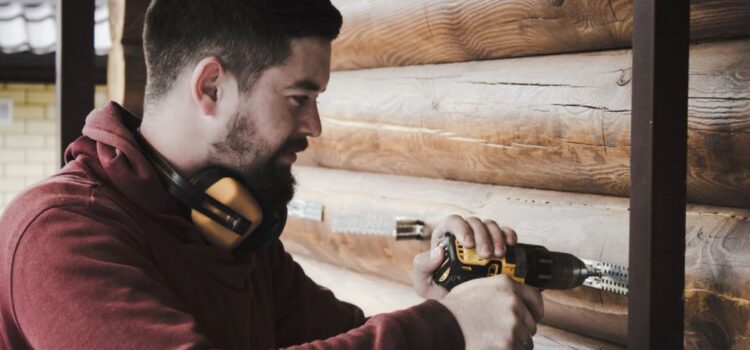

This article is an excerpt from the Shortform book guide to "Flow" by Mihaly Csikszentmihalyi. Shortform has the world's best summaries and analyses of books you should be reading.
Like this article? Sign up for a free trial here .
Do you feel passionate about the work that you do? Do you ever get so into your work that you lose track of time?
If you answered no to those questions, then you should either learn to adapt to new opportunities or find new work. We spend a large amount of our lives working and if you can’t find flow at work, it can greatly affect your quality of life.
Here are some things you can do to find flow at work.
Finding Flow at Work
Since you spend a large portion of your life working, whether you enjoy your work can greatly affect your quality of life. This article explores what makes work feel worthwhile and how you can work on finding flow at work.
Work’s Negative Connotations
To understand our relationship with work, we first need to understand the function of it in our life. One reason we work is to satisfy basic needs. If we were content to use our income to meet our basic needs, then work might feel more worthwhile. For example, nomadic peoples of the Kalahari desert hunt and gather for sustenance, but they don’t invest as much energy in maintaining a dwelling or acquiring material goods. As you widen your ambitions to include acquiring expensive material goods, you’ll likely have to invest even more energy into work to afford them.
What work consists of and how different cultures view it varies widely. Many cultures view work as a necessary part of life, but one to avoid as much as possible. For example, in the Bible, Adam is sentenced to doing work, which is depicted as an integral part of living in a civilization, yet still undesirable. Work also has negative connotations because some groups of people have been forced into slavery to do work that benefits people in power. For example, slaves built the Great Wall of China and the Egyptian pyramids.
To Find Flow, Adapt or Find New Work
There are two ways to find flow at work:
- Adapt to opportunities. Recognize opportunities for flow and take advantage.
- Pursue work that’s likely to produce flow experiences. It’s possible your current job offers few opportunities for flow. Find another line of work that is more conducive to producing flow.
We’ll now discuss the first option in detail. Note: Neither of these strategies alone guarantees that you’ll find flow in work. Ideally, jobs everywhere would be structured to help workers find flow and workers should learn to recognize opportunities to adapt their work into an optimal experience.
Adapt to Opportunities
You don’t need glamorous or exciting work to find flow: Master the work’s challenges, build complexity into it, constantly develop new skills, and immerse yourself fully. The rest of this section offers examples.
Example 1: Serafina Vinon’s Story
Serafina Vinon is a 76-year-old farmer in a remote alpine community in Italy called Pont Trentaz. Each day, she wakes up at 5 a.m. to milk her cows, after which she cooks breakfast and cards wool or tends her orchard. In the summer, she cuts hay and carries it down the mountain. She could take a direct route, but she prefers to take a winding one to minimize erosion. When she’s not working, she spends time with her great-grandchildren or plays accordion with family and community. And she doesn’t distinguish between work and leisure time: When asked what she likes doing best, she listed both work activities and leisure activities. Other older residents of Pont Trentaz responded similarly, as did their children.
But their grandchildren’s responses tended to reflect a greater interest in leisure activities, such as seeing shows, traveling, and reading. Younger generations are typically less content with the status quo and may settle into tradition over time, but it’s more likely they’ll continue to stray from the meaningful work structure developed by the generations before them in favor of leisure instead.
Example 2: Joe Kramer’s Story
Joe Kramer works in a factory that assembles railroad cars. Instead of climbing the ranks from welder to manager, he learned how to perform every task on the assembly line, allowing him to fill in where he’s needed. He also has a knack for fixing equipment, which he developed by repairing household appliances, such as toasters, during childhood. For his skills, he’s widely considered the most valuable employee in the factory. In his free time, he builds intricate gardens on the two empty lots he and his wife purchased next to their property. The gardens include pathways, terraces, and a sprinkler system. Because he was mostly free to enjoy the gardens at night, he devised a lighting system to shine on the water and illuminate the rainbows created by the spray.
Kramer has an autotelic personality: He turns ordinary experiences into flow experiences by making use of the opportunities available to him. In contrast, most other welders interviewed in the study shared the view that work was something impossible to enjoy.

———End of Preview———
Like what you just read? Read the rest of the world's best book summary and analysis of Mihaly Csikszentmihalyi's "Flow" at Shortform .
Here's what you'll find in our full Flow summary :
- Why people feel the happiest when they're in the "flow state"
- What activities and personality traits promote flow
- Why you may have a paradoxical relationship with work and leisure






